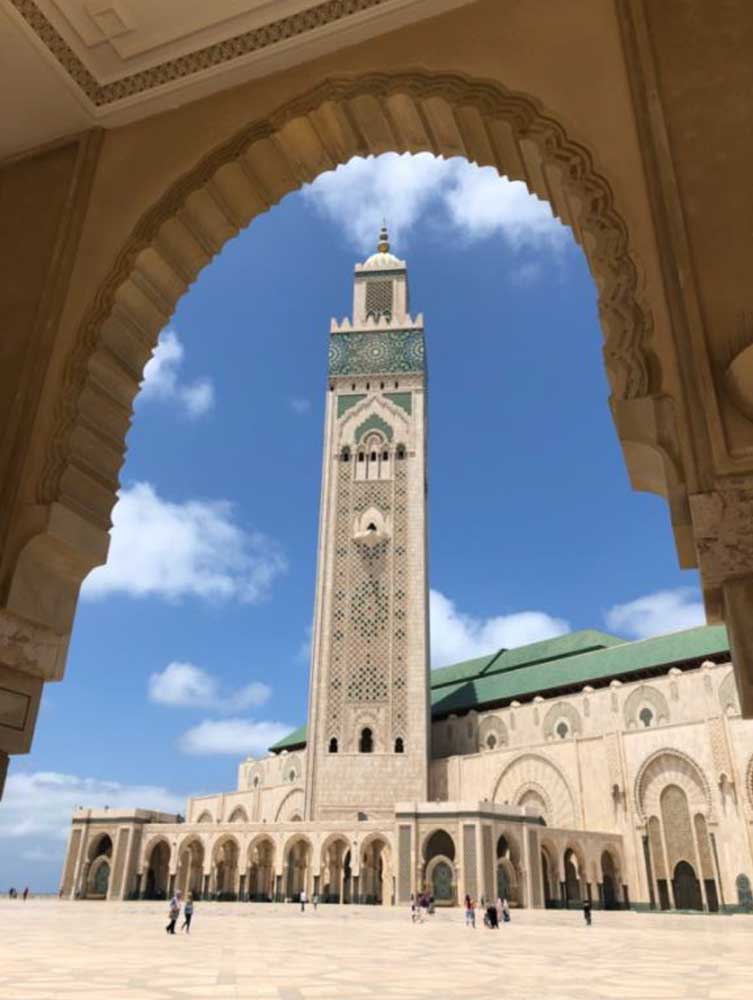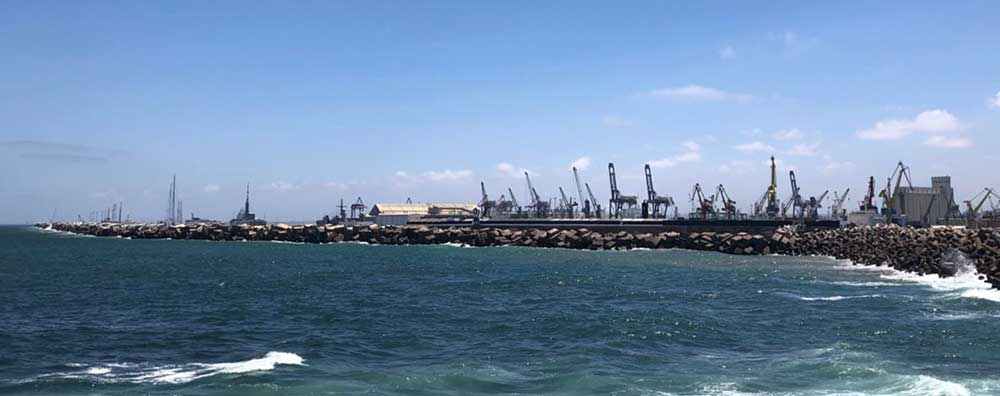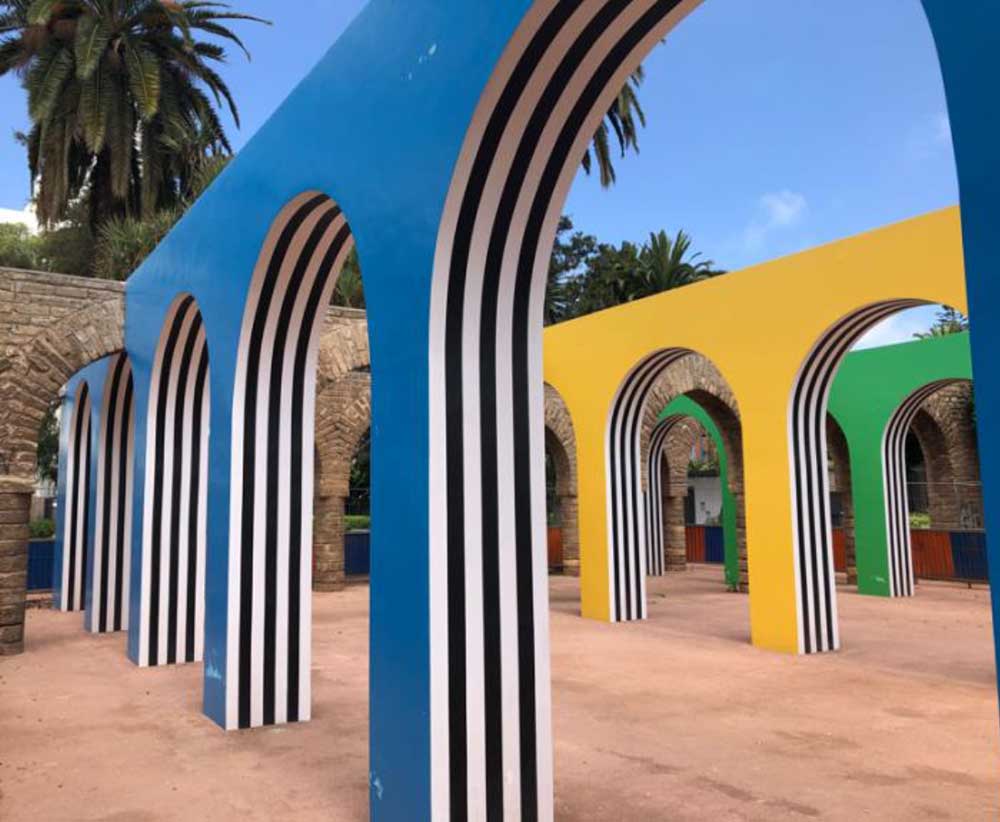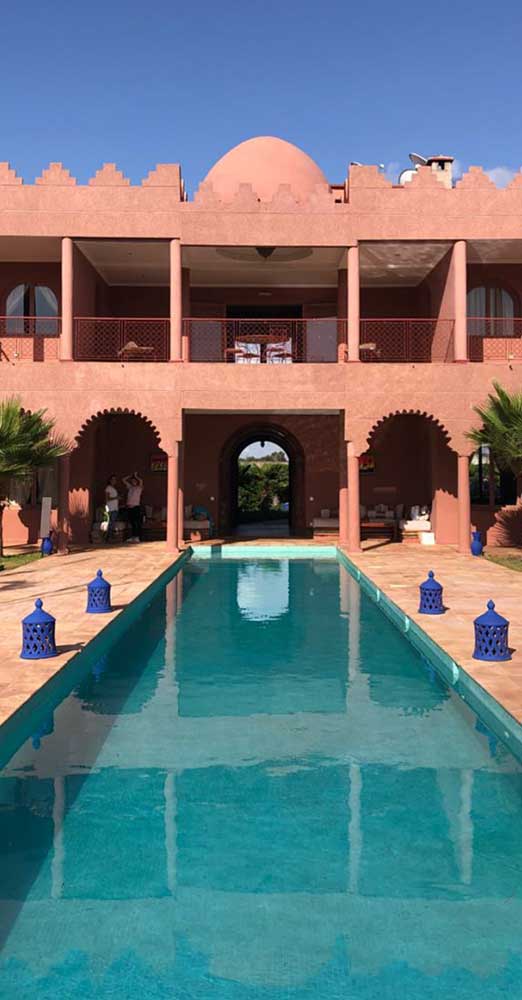Christopher Daley
J.D. Candidate, Class of 2021
Santa Clara University School of Law
On June 23, 1786, when the United States was just a fledgling country, a Treaty of Peace and Friendship between Morocco and the United States was signed. Two-hundred-eighteen years later, the United States and Morocco signed a Free Trade Agreement. Although these events may have passed under the radar of most, they represent a relationship and an opportunity more people should be aware of and appreciate.
 I spent the summer of 2019 working at DLA Piper Casablanca. Led by Christophe Bachelet, expert in corporate, mergers and acquisitions and restructuring, the office also hosts partners Fabrice Armand, expert in finance and capital markets; Saad El Mernissi, expert in projects, energy, and infrastructure and international arbitration; and Mehdi Kettani, expert in intellectual property and technology and employment. Together, with counsel Camilia Benani, and associates Marie-Michèle Banzio and Youssef Tork, DLA Piper Casablanca maintains a friendly and highly professional office environment, welcoming interns frequently from France, as well as from Burkina Faso, Ukraine, the United States, and elsewhere. This professional and dynamic expertise allows interns to be involved in varying projects. From contract review, to advising on legislative guidance, to research and analysis towards resolving varying legal disputes, to coordinating efforts with international business and political contacts, DLA Piper Casablanca has opportunities to practice and expand numerous competencies. They are truly an international team, providing exceptional work for their clients, and unique opportunities for their interns.
I spent the summer of 2019 working at DLA Piper Casablanca. Led by Christophe Bachelet, expert in corporate, mergers and acquisitions and restructuring, the office also hosts partners Fabrice Armand, expert in finance and capital markets; Saad El Mernissi, expert in projects, energy, and infrastructure and international arbitration; and Mehdi Kettani, expert in intellectual property and technology and employment. Together, with counsel Camilia Benani, and associates Marie-Michèle Banzio and Youssef Tork, DLA Piper Casablanca maintains a friendly and highly professional office environment, welcoming interns frequently from France, as well as from Burkina Faso, Ukraine, the United States, and elsewhere. This professional and dynamic expertise allows interns to be involved in varying projects. From contract review, to advising on legislative guidance, to research and analysis towards resolving varying legal disputes, to coordinating efforts with international business and political contacts, DLA Piper Casablanca has opportunities to practice and expand numerous competencies. They are truly an international team, providing exceptional work for their clients, and unique opportunities for their interns.
Located just ten minutes by walking from the Hassan II Mosque to the west, the largest Mosque in Africa, the DLA Piper offices overlook the shores of the Atlantic Ocean to the north, as well as the Port of Casablanca to the east, and the ancient medina to the south. Serving as an important entry point to the rest of Africa, maintaining representation by companies from every other major economy, and with major investments across various sectors, Casablanca is filled with opportunities requiring agility and the desire to interact and communicate across cultures, jurisdictions, and legal norms. Whether you are looking for practice in developing your understanding of international legal work and expanding your cultural awareness or wish to instead stimulate your established abilities and create something you can call your own, Casablanca is the perfect city.

 Beyond the fantastic legal openings present in Casablanca, there is also an exciting and beautiful blend of cultural history, architecture, and natural beauty. The history of Casablanca is complex and interwoven with influence from several different European nations, most notably France. During the French occupation of Morocco, a significant city redevelopment plan for Casablanca was put into place, and the city has mostly kept that construction intact. As such, walking just minutes away from the port and ancient medina is a starkly contrasted collection of 1920’s and ’30’s French art-deco buildings, sidewalks, and avenues.
Beyond the fantastic legal openings present in Casablanca, there is also an exciting and beautiful blend of cultural history, architecture, and natural beauty. The history of Casablanca is complex and interwoven with influence from several different European nations, most notably France. During the French occupation of Morocco, a significant city redevelopment plan for Casablanca was put into place, and the city has mostly kept that construction intact. As such, walking just minutes away from the port and ancient medina is a starkly contrasted collection of 1920’s and ’30’s French art-deco buildings, sidewalks, and avenues.
While some parts of Casablanca may be filled with rich history, other parts are entirely new. Most notably the development in which the DLA Piper offices are located, but also the Casa Port and Casa Voyageurs train stations, with regular connections to the Casablanca airport. These stations were upgraded in conjunction with the Al-Boraq high-speed rail project—providing Train à Grande Vitesse service from Casablanca north to Tangier—such that you can go from the city center of Casablanca to the beaches resting along the Strait of Gibraltar in two hours.
 Perhaps most notable in Casablanca is the blend of French and Moroccan-Arab language and culture, reflected in the widespread use of both French and Arabic in daily conversation. Although English is used, it is more likely to have a fruitful conversation in one of the former languages. This blend can also be found in the local restaurants, bars, and nightlife. Being a Muslim majority country, there is not the usual number of bars one may expect coming from a western culture, but what may be missing therein is overcompensated for by a collection of delicious restaurants and cafés found on every corner of the city.
Perhaps most notable in Casablanca is the blend of French and Moroccan-Arab language and culture, reflected in the widespread use of both French and Arabic in daily conversation. Although English is used, it is more likely to have a fruitful conversation in one of the former languages. This blend can also be found in the local restaurants, bars, and nightlife. Being a Muslim majority country, there is not the usual number of bars one may expect coming from a western culture, but what may be missing therein is overcompensated for by a collection of delicious restaurants and cafés found on every corner of the city.
While the Moroccan-Arab and French culture blend is most apparent, there is also significant influence from Northern Africa. This may be more readily seen in cities such as Marrakesh and Fes. Perhaps most evocative, however, is the Gnaoua World Music Festival, held annually in Essaouira, several hours south of Casablanca. The hustle and bustle of Casablanca will be strongly contrasted by Essaouira, with its quiet and small medina, fishing port, fortress, and expansive beach. That is, however, until the Gnaoua music festival starts, running for three days in June, with estimates of a half million spectators, and providing unrivaled access to Moroccan and North African Islamic spiritual religious songs and rhythms blended with the contemporary practices of jazz, pop, and rock.
Ultimately, there is nothing quite like Casablanca, Morocco. The access to legal opportunities both challenge and excite. The history and architecture are a distinctive blend. The culture is one to be enjoyed. All told, Casablanca undoubtedly provides memories that will last a lifetime.